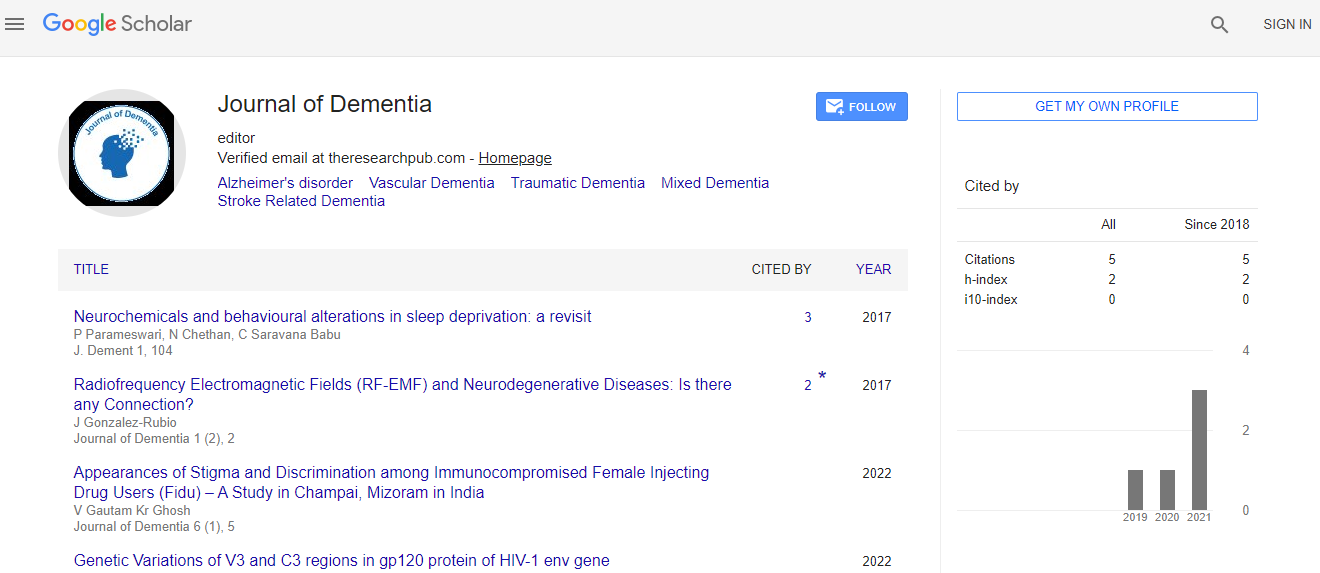Our Group organises 3000+ Global Conferenceseries Events every year across USA, Europe & Asia with support from 1000 more scientific Societies and Publishes 700+ Open Access Journals which contains over 50000 eminent personalities, reputed scientists as editorial board members.
Open Access Journals gaining more Readers and Citations
700 Journals and 15,000,000 Readers Each Journal is getting 25,000+ Readers
Recommended Conferences
42nd Global Conference on Nursing Care & Patient Safety
Toronto, CanadaGoogle Scholar citation report
Citations : 5
Journal of Dementia received 5 citations as per Google Scholar report
Indexed In
- Google Scholar
- ICMJE
Useful Links
Recommended Journals
Related Subjects
Share This Page
Alzheimer's disorder
Mental disorder is also referred to simply as Alzheimer's, is a chronic neurodegenerative disease that usually starts slowly and worsens over time. It is the cause of 60% to 70% of cases of dementia. The most common early symptom is difficulty in remembering recent events (short-term memory loss). As the disease advances, symptoms can include problems with language, disorientation (including easily getting lost), mood swings, and loss of motivation, not managing self-care, and behavioural issues.
Alzheimer's Disorder is a progressive neurodegenerative disease and the most common cause of dementia, accounting for 60% to 80% of all cases. It primarily affects memory, thinking, and behavior, gradually impairing an individual’s ability to carry out daily activities.
Causes and Risk Factors
Alzheimer's disease is marked by the buildup of amyloid plaques and tau tangles in the brain, which disrupt neuron communication and lead to cell death. Key risk factors include aging, genetics, family history, and lifestyle factors such as cardiovascular health, diet, exercise, and education level.
Symptoms and Stages
The disease begins with mild memory loss and confusion, worsening over time. Early signs include trouble remembering recent events, finding words, and organizing tasks. As it progresses, memory loss becomes severe, and individuals may experience disorientation, mood swings, and difficulty with daily activities, advancing to the need for full-time care.
Diagnosis and Treatment
Diagnosis involves medical history, cognitive tests, neurological exams, and brain imaging, with biomarkers aiding in diagnosis. While there is no cure, treatments like cholinesterase inhibitors and memantine can manage symptoms and slow progression. Non-drug approaches, including cognitive therapies and physical activity, can enhance quality of life.
Research and Future Directions
Ongoing research aims to understand Alzheimer's mechanisms, develop new diagnostic tools, and find effective treatments. Advances in genetics, imaging, and biomarkers offer hope for earlier detection and more personalized care. Clinical trials are exploring new therapies targeting amyloid and tau proteins and strategies to enhance brain resilience.

